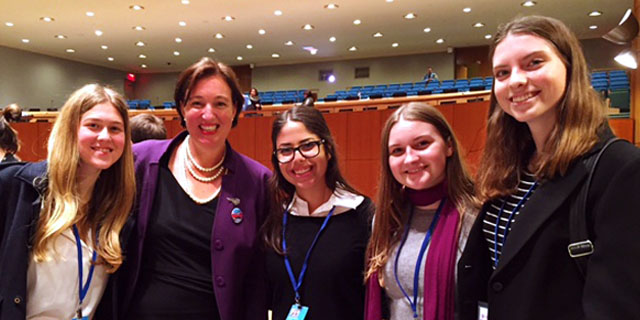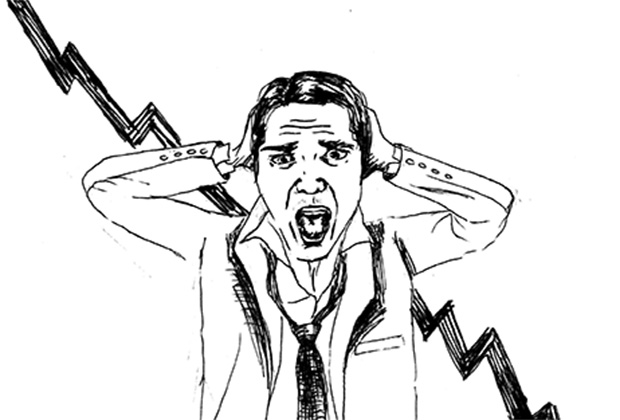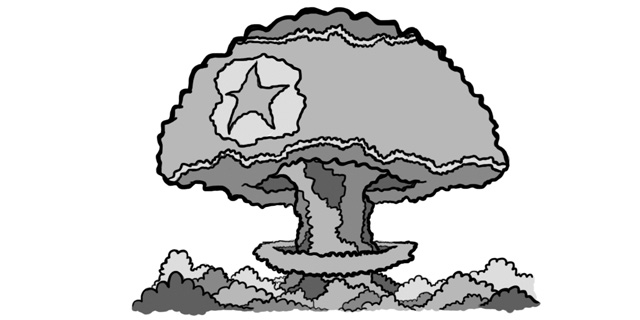
On Wednesday, Jan. 20, I learned just how often I consult Wikipedia for my homework: probably too much. That night, I had what would not be an overstatement to call a breakdown when I found myself unable to learn the differences between mitosis and meiosis. All I had to do to figure out why my trusty homework helper was going haywire was log on to Facebook, where everyone had an opinion on what I at first assumed to be Kate Middleton’s more attractive sisters, “SOPA” and “PIPA.”
I soon learned through frantic status updates that the government was trying to OMG CENSOR THE INTERNET AND OUR LIVES. Being the reasonable person that I am, I assumed that yes, the government was indeed trying to censor the Internet and that I needed to take action, but then I got tired, so instead of “taking action” I ransacked the web and looked up what these bills were really about in instead.
WHAT ARE SOPA/PIPA:
The Stop Online Privacy Act (SOPA), proposed in the House of Representatives, and its sister bill in the Senate, the Protect Intellectual Property Act (PIPA), were designed to make it more difficult for websites (particularly foreign websites) to distribute or profit from copyrighted or pirated material like music and movies, in addition to physical counterfeit items such as purses or jewelry.
Before the one-day protest took place, the bills proposed to block access to websites that distribute copyrighted material (like MegaUpload, which was recently shut down for offering pirated music for free) by requiring search engines to stop displaying links to the offending sites or simply by disabling them. The bills also give the Attorney General the power to force credit card companies to not process orders placed through these websites and advertising agencies to not buy ad space on them.
WHY PEOPLE ARE ALL CRAY ABOUT IT:
Even the staunchest opponents of SOPA and PIPA applaud the attempt to protect creative property, because artists have no means of making money if their work just gets stolen. However, many fear that the broad language of the bills could cross over into censorship. Namely, some worry that content-owners (like CBS, who owns the rights to “Gossip Girl”) will use the bills to sue innocent third-party websites that unknowingly house pirated materials, including Facebook, Tumblr and Twitter, all of which rely on user-uploaded content (like that GIF of Serena van der Woodsen eating a strawberry you watched on repeat for twenty minutes last night).
The real threat of “censorship” lies within an extreme, hypothetical instance in which a big media company or content owner would use its economic clout to coerce a judge into providing a court order that blocks payment from a site that isn’t really committing copyright infringement, thus violating that website owner’s right to free speech. For example, a small online business that specializes in couture shoelace art could go out of business because a larger company that wants a monopoly on shoelace art would be able to get a court order telling credit card companies to stop processing the little website’s orders if they could convince the court that the small business was dealing with counterfeit goods.
In theory though, this would only happen if the little business was in fact pedaling counterfeit shoelace art. This fear has been taken even further by those who say that this bill will actually help support the efforts of countries like China that already block Internet results from websites that threaten the government’s authority or don’t mesh with the country’s goals.
HOLLYWOOD VERSUS SILICON VALLEY:
The consideration of these two bills has pitted two powerful industries against each other: Silicon Valley and Hollywood. The entertainment industry, or the people who make money from producing and distributing movies and music, has lost billions of dollars as a result of pirated copies of their products available online, so it is in their best interest to support any measures to protect their creative property. The technology sector, however, thrives on the immediate and free flow of information, so some fear that large corporations will be able to use these bills to halt innovation by blocking access to sites willy-nilly.
Considering the disproportionate influence corporations exert over our government, the popularity of this misconception is not surprising; corporate lobbyists regularly carve up legislation to suit industry interests and the 2010 Citizens United Supreme Court decision formally equates corporations with people. However, in reality, SOPA/PIPA never would have given corporations the kind of power people freaked out over. The bills did use broad language (which is why they are being amended), but they were very clear in their policy that a court order to halt payment to a website could only be issued if that website was distributing copyright- infringing material. Thus, the frantic rhetoric about censorship was little more than innuendo: no website can be stopped without evidence that it is breaking the law.
The protest that brought the issue to light, however, demonstrated the incredible power that social media can wield on the creation of legitimate policy change. Seven million petitions and nearly four million tweets brought scrutiny of SOPA and PIPA to the forefront of the political discussion and ultimately caused the bills to lose significant congressional support.













TechnelogicallyConfused • Mar 17, 2012 at 11:19 am
SOPA? Spaghetti Over Pasta Alfredo?